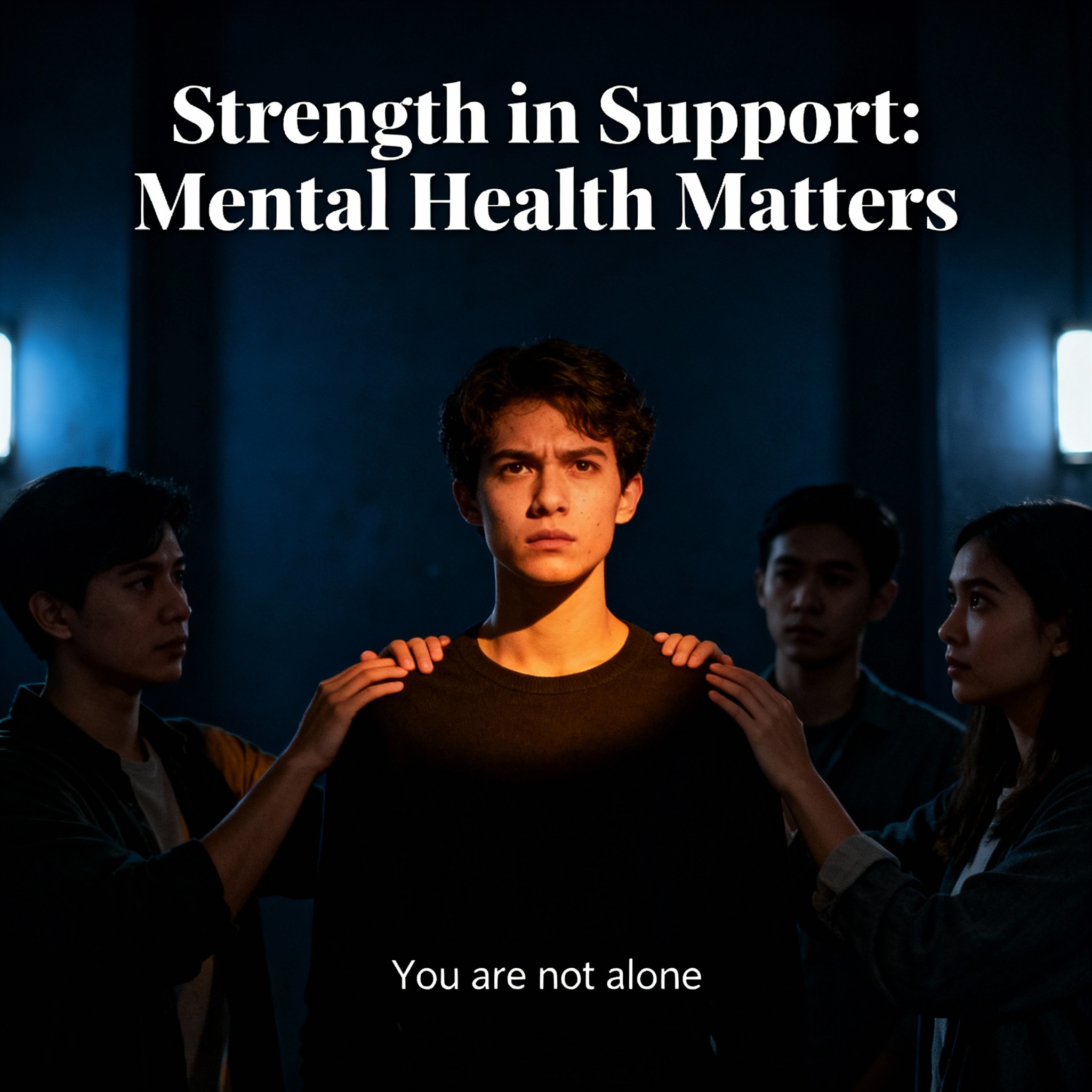Misconceptions about mental health create formidable barriers to treatment and perpetuate harmful stigma that prevents people from seeking the help they desperately need. These myths—passed down through generations and reinforced by media stereotypes—cause real harm by keeping people suffering in silence, ashamed to reach out for support. The truth is that mental health conditions are medical conditions, no different from diabetes or heart disease, and they deserve the same compassionate, evidence-based treatment approach. By confronting and dismantling these myths with facts, we can create a society where seeking mental health support is viewed as the responsible, courageous act it truly is.
Myth 1: Mental Illness Means You're 'Crazy' or Weak
FACT: Having a mental illness doesn't mean you're 'crazy,' 'insane,' or permanently damaged. Mental illness is a legitimate health condition just like diabetes, heart disease, or asthma. It means your brain—an organ like any other—is experiencing symptoms that can be treated. While mental illness may affect your thinking, emotions, or mood, it absolutely doesn't define who you are as a person. Many brilliant, accomplished people throughout history have lived with mental health conditions, including Abraham Lincoln, Winston Churchill, and countless contemporary leaders, artists, and innovators. Mental illness has nothing to do with weakness or character flaws—it results from complex interactions between genetics, brain chemistry, life experiences, and environmental factors entirely beyond your control.
Myth 2: Mental Health Problems Are Rare
FACT: Mental health conditions are incredibly common—far more prevalent than most people realize. Statistically, 1 in 5 adults experiences mental illness each year in the U.S., representing over 60 million people. That means in any given group of five people, statistically one is currently dealing with a mental health condition. Over a lifetime, nearly half of all Americans will meet diagnostic criteria for a mental health condition at some point. If you're struggling with mental health, you are far from alone—millions of people are navigating similar challenges right now, many of them people you interact with daily who manage their conditions successfully.
Myth 3: People with Mental Illness Are Dangerous or Violent
FACT: This represents one of the most harmful and pervasive stereotypes. The reality is that only 3-5% of violent acts can be attributed to individuals with serious mental illness. People with mental health conditions are actually far more likely to be victims of violence than perpetrators—they're 10 times more likely to be victims of violent crime than the general population. The vast majority of people with mental illness are nonviolent and pose no threat to others. This myth, perpetuated by sensationalized media coverage, creates fear and discrimination that prevents people from seeking help and disclosing their conditions to employers or even family members.
Myth 4: You Can Just 'Snap Out Of It' or 'Think Positively'
FACT: Mental health conditions are real medical illnesses affecting brain chemistry and function—they can't be overcome through willpower alone. Telling someone with depression to 'snap out of it' or 'just think positive' is equivalent to telling someone with a broken leg to 'just walk it off.' While positive thinking and mindset can support recovery as part of comprehensive treatment, they cannot cure mental illness by themselves. Recovery requires professional intervention, which may include therapy, medication, lifestyle changes, and sustained support over time. This myth is particularly damaging because it makes people feel they've failed when positive thinking alone doesn't cure their condition, adding shame to their existing distress.
Myth 5: Mental Illness Is Permanent and Untreatable
FACT: Mental health conditions are highly treatable, and most people who receive appropriate treatment see significant, lasting improvement. With proper care—including evidence-based psychotherapy, medication when appropriate, and lifestyle modifications—many people recover completely from mental health conditions. Even those with chronic conditions can learn to manage symptoms effectively and live fulfilling, meaningful lives. Treatment success rates for depression and anxiety rival or exceed those for many physical conditions. The key is accessing evidence-based treatment and staying engaged with it long enough to see results.
Myth 6: Children Don't Have Mental Health Problems
FACT: Mental health conditions affect people of all ages, including children and adolescents. In fact, 50% of all lifetime mental illness begins by age 14, and 75% by age 24. One in six children aged 2-8 has a diagnosed mental, behavioral, or developmental disorder. Early identification and intervention are crucial because treating mental health conditions in childhood can prevent more serious issues in adulthood and dramatically improve long-term outcomes. Unfortunately, children's mental health symptoms are often dismissed as 'just a phase,' delaying critical treatment.
Myth 7: Therapy Is Only for 'Serious' Mental Illness
FACT: Therapy benefits virtually anyone, regardless of whether they have a diagnosed mental health condition. It's a valuable tool for personal growth, stress management, navigating life transitions, improving relationships, and enhancing overall wellbeing. You don't need to be in crisis to benefit from therapy—in fact, proactive mental health care can prevent problems from escalating. Think of therapy as preventive maintenance for your mind, similar to regular dental cleanings or annual physical exams for your body.
Breaking these misconceptions is essential for reducing stigma, encouraging people to seek help without shame, and creating a society where mental health is treated with the same seriousness and compassion as physical health. Every time we challenge these myths in conversation, we help dismantle barriers to treatment and save lives.
Related Articles
References & Sources
- NAMI - Mental Health Myths & Facts
- Mental Health America
- American Psychiatric Association
- National Institute of Mental Health



